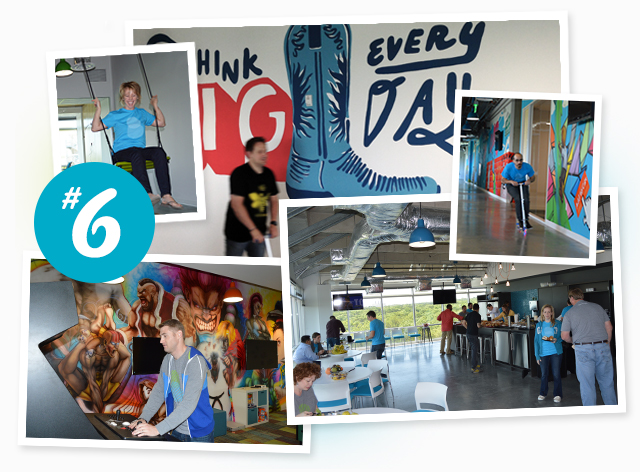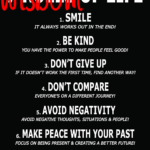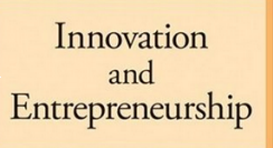Home to PeopleAdmin and Indeed, Austin has a history with employment that’s intriguing to explore. Recruiting technology, in particular, seems to play a unique role in the city stemming, to some extent, from its culture of creativity, innovation, and just the right balance between work and life.
Indeed, Indeed (you can’t appreciate how long I’ve been waiting for a reason to say that), the Austin-based search engine for jobs, was known in Silicon Valley as the search engine that could – the idea that a search based technology could be born of somewhere other than the scientists of Silicon Valley was largely unheard of, until Indeed did it. Today, as a result of their work, there is little reason to search elsewhere for employment opportunities when what Google did for websites, Indeed has done for jobs – search everything.
Parallel to Austin’s expertise with recruiting technology, and since such technology is born of Austin, it’s been interesting to watch from the sidelines as the economy wrestles with the challenges of talent. With companies like Google, Facebook, eBay, Apple, and Visa moving to Austin, developers, for example, are in increasing demand, not just by established and innovative companies, but as a result of the explosive growth in software, mobile, and internet innovation. Many cities, I’m sure yours is as well, are dealing with an increasing demand for technical professionals in engineering, software, marketing, and even sales; an increasing demand for which the pace of supply doesn’t seem to be keeping up.
Article Highlights
Talent Supply and Demand
One of Austin’s coolest startups (we need more “cool” this time of year), SpareFoot, shared just last week the difficulty of finding true tech talent. But as SpareFoot posits, is it because demand exceeds supply?
According to the Austin Technology Council, local tech businesses — such as SpareFoot — will likely need to fill 1,200 new jobs in software development between now and 2017. Frankly though, that doesn’t sound like to daunting a task when you consider the net migration of 20,000 people to Austin each year. Something doesn’t add up. Silicon Valley Bank found that 94 percent of tech startups (the highest percentage of any state!) in Austin AND the rest of Texas are having challenges finding workers with the right skills.
 Are there gaps in the marketplace for work, in cities like Austin, that simply have yet to be closed? Certainly, the reality is that the challenge every economy has with talented professionals is a mix of a variety of things and indeed, Austin does have a shortage of experienced talent, relative to demand; but what are the other factors that might make it challenging for companies, Austin companies, to fill jobs?? Especially when we’re the home of innovation in recruiting?!
Are there gaps in the marketplace for work, in cities like Austin, that simply have yet to be closed? Certainly, the reality is that the challenge every economy has with talented professionals is a mix of a variety of things and indeed, Austin does have a shortage of experienced talent, relative to demand; but what are the other factors that might make it challenging for companies, Austin companies, to fill jobs?? Especially when we’re the home of innovation in recruiting?!
1. Developing and enabling our own talent
Talent, more than skilled professionals, takes time to develop. Finding capable professionals is one thing but finding the right person to fill a job is quite another. For that reason, one of the most valuable assets for Austin to continue to develop as an economy is that of efficient, accessible, in-demand training.
Not large, class room-like environments nor quick hit meetups with speakers teaching a few tips and tricks but practical, hands on skills development. One of my favorites is the work that MakerSquare is doing to bring shovel ready developers to market in 10 weeks. Partnering with local companies, MakerSquare is matching the best teachers in town with students seeking in-demand skills but more, through those local companies, they are putting professionals right to work. With in-class development projects and engagement with employers throughout the program, MakerSquare is an innovative approach to skills based training that directly fills the talent gap.
“We focus on crafting immersive learning experiences with a small student-teacher ratio. You’ll learn real-world skills that help you get a job and build your ideas.”
Why is our collective investment in such programs so critical? While the professionals might be migrating here, added Julie Huls, president and CEO of the nonprofit Austin Technology Council, “We simply aren’t graduating people at the rate fast enough to fill these roles [locally].”
2. Culture and Industry
Next consider if our part of the world is effectively appealing to the talent we need to bring to market. I’ve found this idea to be a bit contentious because, it goes without saying, the single best place to live in the country is Austin. Austin’s culture and economy IS appealing; rather, is it appealing to the people and skills we need? The lifestyle and demand for work/life balance here is unparalleled. But while it’s attractive, does it appeal to most talented professionals whom are in such demand here? Does your own company culture appeal to those professionals who want their work life to mirror the Austin lifestyle or are you trying to hire into a corporation with cubes??
Donna Taylor with the Texas State SBDC recently shared with their audience, “I’m always fascinated by stories of businesses with incredible corporate culture- the Zappos, Nordstroms & Southwests of the world. How do they get that many employees to believe in their work so much that they consistently go above and beyond to ensure customer satisfaction?”
Shawn Parr, The Guvner & CEO of Bulldog Drummond, recently explored in Fast Company the idea (fact?) that culture trumps strategy in business. That’s certainly true of employment.
“Think about the Marines: the few, the proud,” shared Parr. “They have a connected community that is second to none, and it comes from the early indoctrination of every member of the Corps and the clear communication of their purpose and value system. It is completely clear that they are privileged to be joining an elite community that is committed to improvising, adapting, and overcoming in the face of any adversity. The culture is so strong that it glues the community together and engenders a sense of pride that makes them unparalleled.”
People join the Marines because it’s the Marines, not because they have a job opening. Culture drives employee passion, retention, and involvement.
And as goes the professional culture of an economy, so goes industry. I explored with Forbes just a couple weeks ago the idea that cities must professionally brand themselves in order to attract the right workers. Austin’s culture certainly has the appeal, otherwise we wouldn’t have so many migrating here, but is the alignment of our professional culture, and promotion of industry, consistent with the demands we have for labor? Is it? If it were, I’d hazard a guess that we wouldn’t have trouble filling hundreds of technical jobs each year when 20,000 people are moving here – on top of the many incredible professionals we’re developing from within. No?
Dennis Lyftogt, one of those newcomers, an advisor to entrepreneurs and incubators from Nashville, has some brilliant perspective sharing, “I am in ‘violent’ agreement that a City/Metro/Community needs to identify Whom they Are & What is their Vision which also maps to their Target audience they want to Retain, Attract, & Recruit. This is particularly true for Emerging Metros (ie Austin, Nashville, Boulder, etc) which want to take a ‘first mover’ (probably oxymoron for Govt.) advantage and capture the great ideas, talent, and businesses that are leaving the East & West Coasts.”
 The challenge, Lyftogt suggests, is so appropriately summarized by the great philosopher Wayne Gretzky, “A good hockey player plays where the puck is. A great hockey player plays where the puck is going to be.”
The challenge, Lyftogt suggests, is so appropriately summarized by the great philosopher Wayne Gretzky, “A good hockey player plays where the puck is. A great hockey player plays where the puck is going to be.”
The key strategy then for Austin is to skate where the puck is going to be. Is your company culture and direction focused on where the puck is GOING to be? Is Austin’s economic culture and our development of industry doing the same? With our focus on health technology, local/mobile, social intelligence, ed tech, eCommerce, custom high tech manufacturing, recruiting technology (the very thing we’re exploring here), and more bleeding edge innovations, I think so. What more can we do to ensure the world’s talent knows these innovations are born of Austin?
3. Reward not compensation
One of the greatest challenges for any innovative economy is that talent (like investment) follows reward more than mere compensation. In much the same way that early or traditional capital sources look for a quick return (effectively compensation), so too does labor. But does everyone? The thought leaders in industry, those who work their passion, scientists, rockstar developers and ninja marketers (that’s for you Lucas), and significant investors, are usually motivated and involved because of the reward, not compensation. Reward is harder to distinguish, harder to promote, and harder to provide.
Why does a bank loan come with an interest rate? I’m sure you can’t conceive of raising the amount of capital for your next venture through the bank; and whatever money you can get will come with a legally required surcharge on your repayment of the loan. That “resource” expects to be compensated. Any capital source with which you’re working, looking for that immediate, guaranteed return, is looking to be compensated. I’m curious if the same analogy can’t be applied to talent.
What makes those of you who are entrepreneurs entrepreneurs, is that you aren’t likely in it for the compensation. Don’t you want to hire individuals a fair approximation of yourself? Certainly not the same skills as your own but I’m sure you’d favor hiring someone with your work ethic, your ambition, your drive. Wouldn’t you? And I’d suspect you aren’t compensating yourself as well as you plan to when you IPO 😉
Trying to find talent that will work for equity or less-than-market-compensation is impossible. Attracting the right talent because the rewards of working with you, for you, or on your project or business is quite another thing. It’s not an easy thing to accomplish but ask yourself, are people clamoring to work for you because of what you’re doing or what you’re paying? If attracting talent is a challenge try another approach, embrace marketing for what it is (more than customer acquisition) and focus on the reward, not the return.
4. Continue to support creative innovation in Austin
 I think Silicon Valley headhunter Nick Corcodilos captured the need for innovation best, in his brilliant piece for PBS, The Talent Shortage Myth and Why HR Should Get Out of the Hiring Business, “While the economy has put massive numbers of talented workers on the street, HR nonetheless complains it can’t find the workers it needs. That’s no surprise when HR’s idea of finding talent is to resort to database searches and keyword filtering, which are disastrously inadequate methods for finding and attracting the best hires.”
I think Silicon Valley headhunter Nick Corcodilos captured the need for innovation best, in his brilliant piece for PBS, The Talent Shortage Myth and Why HR Should Get Out of the Hiring Business, “While the economy has put massive numbers of talented workers on the street, HR nonetheless complains it can’t find the workers it needs. That’s no surprise when HR’s idea of finding talent is to resort to database searches and keyword filtering, which are disastrously inadequate methods for finding and attracting the best hires.”
What I love about Austin’s potential and culture, is that it’s here, more than anywhere, that out of challenges, and our strengths, new ideas are born. We are developing our own talent in incredible ways. Austin’s industries are bleeding edge and the culture is drawing tens of thousands. And as we start to ask IF and HOW those facts are drawing the right talent, I think it’s intriguing to ask if we’re merely compensating, or rewarding, and what more we can do in that regard to draw incredible talent to our businesses and city.
And that brings us full circle to the fact that Austin has some roots in the innovation of employment itself. From PeopleAdmin to Indeed, Austin’s problem-solving culture is finding ways to close that talent gap.A couple of incredible new ventures are pushing us further with some astounding and brilliant ideas.
First, check out Affintus. Affintus features a candidate ranking and matching system that compares every applicant to a unique Job Formula and to every other candidate applying for the job. Formulas are matching algorithms that can be tailored to your company and the job’s role. I’m not sure it’s fair to go so far as to say this but the only thing that was going through my mind in exploring Affintus with the team is that I’ll never need to interview someone again.
A lofty idea isn’t it? But consider the implications of that value within the entire context of this post. Affintus, like Indeed before it, is pushing us so far forward that the rewards are inherent. Who wouldn’t want to work on such a technology? Imagine the implication this,one of Austin’s next innovations in recruiting will have on employment throughout the world.
And while Affintus knows the job you need filled and the right candidate to fill it, we’re still left trying to nail down that intangible culture, ei Talent figures it out. ei believes it’s the way people behave, apparent in their written language (through resumes, social networks, email, etc.), that provides clarity to people’s intent and provides actionable insights into potential behavior and outcomes. To put it simply, when you know what eveyone’s really saying, you know they’re true meaning and therein is the true culture of your organization and the expectations of talented professionals. As Shawn Parr put forth, “culture trumps strategy.” Is culture what’s driving the right talent to work through Austin? To some extent it certainly is, but are all the elements in place yet to attract the right talent? If they were, would we have that talent gap?
Let’s talk more about Work, Culture, and Austin
 July 22nd, here in Austin, I’ll be joined by Matt Corey, CMO of Mass Relevance, Dean Kakridas, Founder of FOVNDERS, Matt Chasen, Founder of uShip, and Liz Elam, Curator of Link Coworking, for an event hosted by Turnstone, diving into the question of Culture at Work. We’ll be having drinks and exploring how extraordinary company culture results in extraordinary companies. Here’s the catch I’m frustrated to have to share… the seats for the evening are already sold out (we need Mass Relevance to tear down a wall so we have more room!). Pop over to the event registration page for details but hit me up below to keep the conversation going. If there’s enough demand, I’m sure we can migrate from the event to the Driskill.
July 22nd, here in Austin, I’ll be joined by Matt Corey, CMO of Mass Relevance, Dean Kakridas, Founder of FOVNDERS, Matt Chasen, Founder of uShip, and Liz Elam, Curator of Link Coworking, for an event hosted by Turnstone, diving into the question of Culture at Work. We’ll be having drinks and exploring how extraordinary company culture results in extraordinary companies. Here’s the catch I’m frustrated to have to share… the seats for the evening are already sold out (we need Mass Relevance to tear down a wall so we have more room!). Pop over to the event registration page for details but hit me up below to keep the conversation going. If there’s enough demand, I’m sure we can migrate from the event to the Driskill.





Thank you Paul – you’ve eloquently synthesized a number of the challenges. It’s a ecosystem of confluence to build the momentum needed.
Melissa Anthony Sinn glad you read it that way, thanks Melissa! I’ve started to think about economic and business development rather like chess. There is no silver bullet but rather a series of pieces and moves that need to be made to make a difference.
Brilliant quote about the startup fundraising that deserves some reddit gold!
“Any capital source with which you’re working, looking for that immediate, guaranteed return, is looking to be compensated.” – that’s not an investment
Love the Gretzky quote…people usually default to the you-missing-100%-of-the-shots-you-don’t-take quote…this one’s better 🙂
Eric Levine it’s my favorite. I think the puck analogy is MUCH more appropriate to startups whereas the oft-quoted missing shots quote is about encouraging entrepreneurship of any kind. If you don’t take the shot, you can’t even begin a life as an entrepreneur or conceive of a startup. But as advice to a founder goes: skate to the where the puck is going.